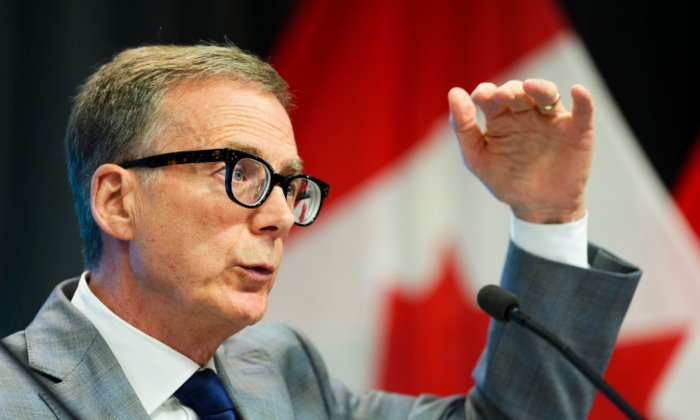BoC Analysis: Economy Slowing Down While Leaving Room for Possible Rate Hikes
OTTAWA — The Bank of Canada is facing pressure to halt its rate hikes in response to a cooling economy. Despite concerns about persistent inflation, the central bank has decided to keep its key policy rate at 5 percent on Sept. 6. Economists predict that this is likely the highest rate the BoC will go, with factors such as credibility and evolving economic conditions playing a role in the decision. BMO chief economist Doug Porter and CIBC chief economist Avery Shenfeld also believe that a 5 percent interest rate is sufficient to address inflation and bring it back to the 2 percent target. RBC assistant chief economist Nathan Janzen expects the BoC to maintain the current rates until the end of the year.
The second quarter’s negative economic growth of -0.2 percent, which fell far below the BoC’s estimate of 1.5 percent in July, is a significant factor in forecasting consumer spending. The contraction in gross domestic product (GDP) was attributed to a slowdown in consumer spending, a decline in home building, and an increase in imports over exports. The central bank has missed its quarterly growth forecasts for two consecutive quarters due to consumer spending. Experts argue that the BoC should consider money supply in its monetary policy to better forecast consumer spending. Certain measures of money supply in the economy have decreased by nearly 10 percent per year after initially growing by over 20 percent at the start of the pandemic.
Inflation increased by 0.5 percentage points to 3.3 percent in July, with mortgage interest payments being the main contributor to above-target inflation. The BoC expects elevated inflation in the near term due to higher gas prices. CIBC’s Avery Shenfeld believes that the BoC should take into account mortgage interest costs when examining headline inflation.
Politicians, including B.C. Premier David Eby and Ontario Premier Doug Ford, have called for a halt to rate hikes, citing concerns about housing affordability and potential defaults on loans and mortgages.
The Canadian economy is currently experiencing weaker growth, which the central bank believes is necessary to alleviate price pressures. Depending on the outcome of the third quarter, Canada could be in a technical recession. While economists have varying definitions of a recession, the BoC notes that growth has slowed globally, especially in China, and the United States has experienced stronger growth due to consumer spending.
Source link




